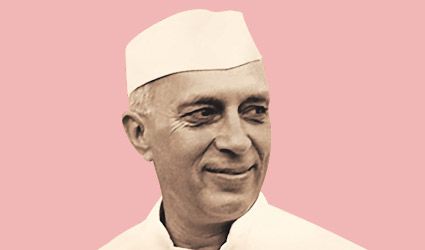The Iconic Story Of Pandit Jawaharlal Nehru – His Contribution to the Freedom of India!
Pandit Jawaharlal Nehru, a towering figure in Indian history, is widely regarded as the architect of modern India. His visionary leadership, dedication to democracy, and tireless efforts to uplift the nation have left an indelible mark on the country’s socio-political landscape. Nehru’s life story is one of struggle, determination, and unyielding commitment to the ideals of freedom, social justice, and progress. This article delves into the life, achievements, and enduring impact of Pandit Jawaharlal Nehru.

Born on November 14, 1889, in Allahabad, Pandit Jawaharlal Nehru was the son of Motilal Nehru, a prominent lawyer, and Swaroop Rani Nehru. Hailing from an affluent family, Nehru received his early education in prestigious institutions like Harrow and Cambridge in England. These formative years exposed him to Western ideas, politics, and the nascent waves of nationalism across the world.
Nehru’s exposure to the broader world during his education played a pivotal role in shaping his ideology and worldview. He returned to India in 1912, deeply influenced by the ideas of liberalism, socialism, and anti-imperialism.
Nehru’s Role in the Independence Movement:
Pandit Nehru’s entry into the Indian political arena coincided with the rising tide of the Indian independence movement. He joined the Indian National Congress and became an ardent supporter of Mahatma Gandhi’s nonviolent civil disobedience movements. Nehru’s charismatic personality and eloquent speeches made him a prominent leader, connecting with the masses and inspiring them to join the struggle for freedom.
As India’s first Prime Minister, Nehru played a crucial role in shaping the nation’s destiny in its initial years after independence in 1947. His leadership during this crucial phase was marked by his commitment to secularism, democracy, and social justice.
One of Nehru’s most significant contributions was his vision for a modern, industrialized, and self-reliant India. He understood that economic development was essential to uplift millions from poverty and deprivation. Under his leadership, the government embarked on a series of initiatives aimed at building a strong industrial base, scientific research institutions, and infrastructure projects like dams and power plants.

The establishment of institutions like the Indian Institutes of Technology (IITs) and the Indian Institutes of Management (IIMs) laid the foundation for the country’s technological and managerial prowess. Nehru’s policies also focused on agriculture, aiming to increase food production and ensure food security for the burgeoning population.
Nehru’s international outlook was marked by his commitment to the principles of peace and non-alignment. In the midst of the Cold War, he played a pivotal role in the formation of the Non-Aligned Movement (NAM), which sought to maintain neutrality and avoid alignment with either of the superpowers. This movement not only contributed to global peace but also showcased India’s leadership on the world stage.
While Nehru’s leadership was widely celebrated, he also faced criticism and challenges during his time as Prime Minister. The Chinese invasion of India in 1962 was a significant setback, leading to debates about his foreign policy and military preparedness. His economic policies, particularly the focus on centralized planning, also faced criticism for not delivering the desired outcomes and perpetuating bureaucratic inefficiencies.
Pandit Nehru’s impact on India’s social fabric cannot be overstated. His commitment to secularism, democracy, and inclusivity helped shape the foundational principles of the nation. His efforts to promote education and scientific research laid the groundwork for India’s intellectual advancement. His emphasis on diplomacy and peaceful coexistence left a lasting legacy in international relations.
Nehru’s influence extended beyond politics. He was an eloquent writer and thinker, authoring several books that captured his philosophy, including “The Discovery of India.” His love for children and his birthday being celebrated as Children’s Day in India reflects his genuine affection for the younger generation.
Pandit Jawaharlal Nehru’s journey from an educated aristocrat to a dedicated leader of India’s struggle for independence and subsequently as the nation’s first Prime Minister is a tale of unwavering commitment to his ideals. His life story is a tapestry of successes, challenges, and moments of introspection, which continue to inspire generations. Nehru’s vision of a modern, democratic, and inclusive India remains a guiding light for the nation’s ongoing journey. His legacy serves as a reminder that leadership rooted in values, compassion, and a commitment to progress can shape the destiny of a nation.
